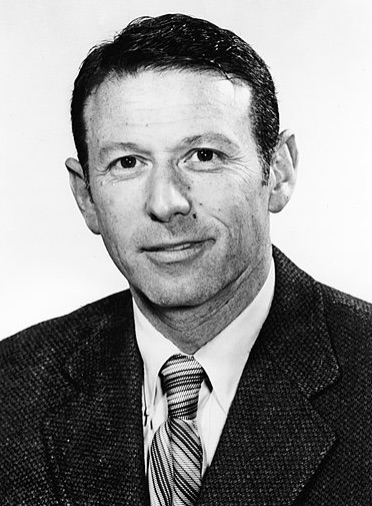
Paul Berg was born on June 30, 1926 in Brooklyn, NY, the son of Russian Jewish immigrants. After graduating in 1943 from Abraham Lincoln High School, he enrolled in biochemistry at Penn State University, and graduated with a B.Sc. in 1948. Paul subsequently pursued graduate studies at Case Western Reserve University where he explored the use of radioisotope tracers to study how food is converted into cellular materials in the body. In particular, he identified the role of folic acid and B12 in this process. After receiving his Ph.D. in 1952, Paul Berg was awarded a two-year postdoctoral fellowship by the American Cancer Society, enabling him to study at the Institute of Cytophysiology in Copenhagen, Denmark.
In 1955, Paul served as a professor at Washington University School of Medicine until 1959 when he joined the faculty at Stanford University in 1959. There, he made significant contributions to the study of nucleic acids, particularly focusing on understanding how DNA is transcribed into RNA and how RNA is translated into proteins. This paved the way for the development of genetic engineering techniques described as “gene splicing.” .
In 1980, Paul Berg was awarded the Nobel Prize in Chemistry, along with Walter Gilbert and Frederick Sanger for their contributions to the understanding of the biochemistry of nucleic acids. Berg’s specific contribution was the development of recombinant DNA technology, which involves the joining of DNA from different organisms, revolutionizing the fields of genetics and molecular biology. In addition to his Nobel Prize, Berg received numerous other awards and honors, including the National Medal of Science.
At the end of the 20th century, Berg changed his focus from exploring biochemical processes to the consideration of ethical questions associated with the manipulation of DNA. He once observed, “To understand and manipulate the fundamental processes of life at the molecular level is one of the grandest challenges in science.”
However, he was aware that genetic manipulation could have some extremely negative consequences, and became a prominent voice in the early discussions about the potential risks and benefits of genetic engineering, advocating for careful consideration of the societal implications of scientific advancements.
Paul Berg died on February 15, 2023, in his home in Stanford, California at the age of 96.
